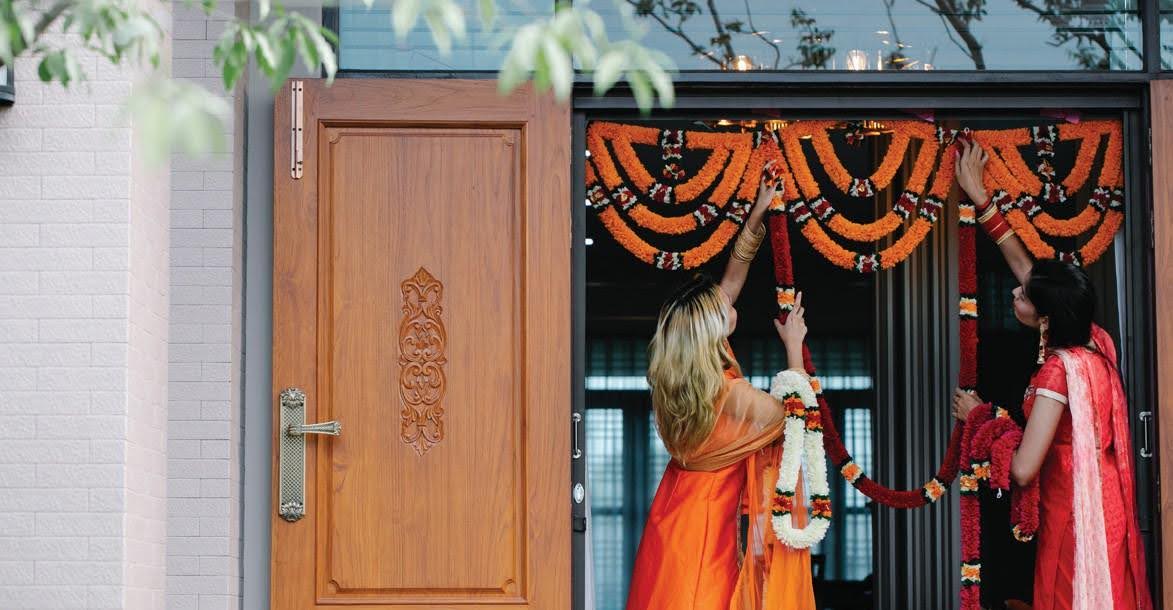The new record budget allocated to Indian Railways will ensure rapid growth and innovation TEXT: INDIAN RAILWAYS MAGAZINE India’s railways are set for a major transformation, thanks to a hefty Rs. 2,52,000 crore capital expenditure allocation in the Interim Budget FY 2024-25. This historic investment reflects the government’s “Sabka Saath, Sabka Vikas, Sabka Vishwas” commitment and aims to propel the nation’s economy while enhancing passenger comfort and safety. Under the PM Gati Shakti, projects will enable multi-modal connectivity, improving logistics efficiency and reducing costs. This includes the conversion of 40,000 rail bogies to Vande Bharat standards for enhanced safety and passenger convenience. Three major economic railway corridor programs are set to roll out, focusing on Energy, Mineral, and Cement Corridors, Port Connectivity Corridors, and High Traffic Density Corridors. These initiatives, combined with dedicated freight corridors, are expected to accelerate GDP growth and reduce logistic costs. The projects have been identified under the PM Gati Shakti for enabling multi-modal connectivity. They will improve logistics efficiency and reduce costs. The Minister of Railways, Shri Ashwini Vaishnaw, expressed gratitude to Prime Minister Shri Narendra Modi for the significant allocation. He highlighted a shift in focus over the last decade, moving from adding new trains to enhancing capacity and safety measures. Notable achievements include 26,000 km of new tracks, a Rs. 1,08,000 crore investment in Safety Systems, the Automatic Train Protection system (Kavach), and the development of popular new-generation trains. The budget emphasizes three key corridors for additional capacity: Energy, Mineral, and Cement; Port Connectivity; and ‘Amrit Chaturbhuj’ for high-density traffic routes. These corridors are set to lay around 40,000 km of new tracks, boosting capacity and reducing pollution. The Minister of Railways emphasised that the current budget places a strong emphasis on creating additional capacity through three key corridors. The first corridor focuses on Energy, Mineral, and Cement, aiming to curtail road pollution and lower logistics costs. The second corridor prioritizes port connectivity, ensuring seamless integration with ports through a multimodal approach called ‘Gati Shakti.’ The third corridor, named ‘Amrit Chaturbhuj,’ is envisioned as a railway network equivalent to the golden quadrilateral on high-density traffic routes. Collectively, these three corridors are set to lay approximately 40,000 km of new tracks, significantly boosting railway capacity and reducing pollution. The railway’s potential to save up to 90% of CO2 emissions in a cost-effective manner is expected to bring about a substantial transformation in the country’s economy, fostering efficiency, productivity, and sustainability. Regarding the second significant announcement, the Minister explained, “The success of ‘Vande Bharat’ and ‘Amrit Bharat’ trains has paved the way for the upgrade of all 40,000 conventional coaches. Efforts to enhance capacity are underway on multiple fronts.” Last year, we added 5,200 km of new tracks, equivalent to Switzerland’s entire rail network. This year, the plan is to add 5,500 km, a significant increase from 4 km per day in 2014 to around 15 km per day now. The budget for FY 2024-25 allocates Rs. 2,52,000 crore for capital expenditure (CAPEX). Notably, by the end of January 2024, we’ve achieved 82% of the CAPEX budget for the current year. The clear focus is on expanding capacity, improving the passenger experience, and enhancing infrastructure. The Hon’ble Prime Minister’s emphasis on railways is evident, and completion of the three corridors is expected to address the waiting list problem effectively. Prime Minister Shri Narendra Modi has praised the Interim Budget as inclusive and innovative, expressing confidence in continuity and its ability to empower all four pillars of ‘Viksit Bharat’ – youth, poor, women, and farmers. The Prime Minister highlighted the announcement in the budget to manufacture 40,000 modern ‘Vande Bharat Standard’ coaches, emphasizing that their induction into regular passenger trains will significantly enhance the travel experience for millions of passengers on various railway routes across the country. As part of the strategy for ‘Amrit Kaal’, these three major economic railway corridor programmes have been identified under the PM Gati Shakti for enabling multi-modal connectivity. They will improve logistics efficiency and reduce costs. The resultant decongestion of the high traffic corridors will also help in improving operations of passenger trains, resulting in safety and higher travel speed for passengers. Together with dedicated freight corridors, these three economic corridor programmes will accelerate GDP growth and reduce logistic costs.pen_sparktunesharemore_vert








